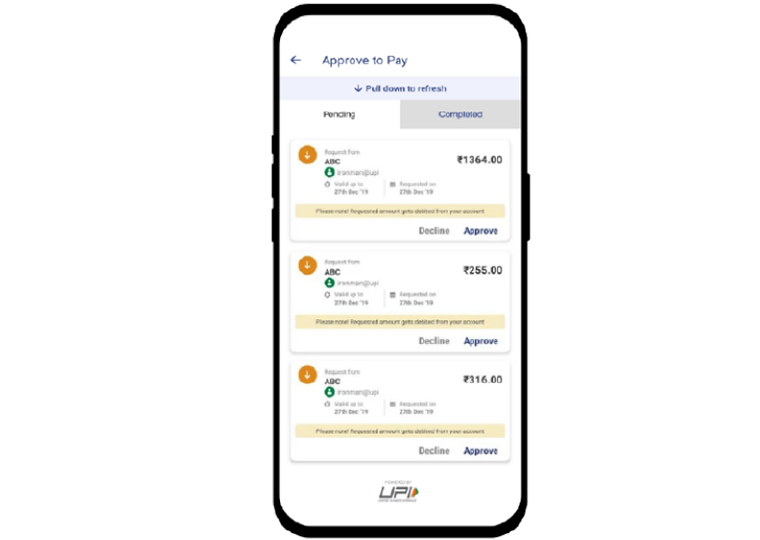Fresh-start dates can serve as either — it’s a two-way nudge
A series of research papers in recent years laid out evidence that one doesn’t need to wait for New Year’s Day or a birthday to launch a self-improvement effort: A new week, month or semester can serve as a motivating line of demarcation between our old selves and the new us.
Now comes research — forthcoming in Organizational Behavior and Human Decision Processes by Sungkyunkwan University in South Korea’s Minjung Koo, UCLA Anderson’s Hengchen Dai, National University of Singapore’s Ke Michael Mai and University of Florida’s Camilla Eunyoung Song, a Ph.D. student — that suggests that, for a goal we’re already working on, that new week or month looming ahead may encourage us to slack off. The fresh-start mechanism that helps us separate our past or present self from our future self, the authors find, triggers “intrapersonal loafing” that undermines goal pursuit.
In an archival study and four experiments, the researchers found that people already working on a goal will use an upcoming temporal landmark (the academic term for distinctive dates) as license to slack off, on the assumption they will get back at it when the fresh-start date hits and they’ll make up for lost progress. (Alas, the researchers found that the future self doesn’t seem to catch up for lost time once a goal is rebooted.)
Opt In to the Review Monthly Email Update.
In one study, 320 participants who were screened for being active exercisers were asked to imagine that their birthday was in three days. The control group was told they were turning 32 and shown a monthly calendar that showed the birthday marked off as happening in the middle of the month. No biggie.
The target group was primed to see the birthdate as a more significant landmark. They were told they were turning 30 and shown a calendar that had the big day falling at the start of a new month. To ensure nothing was lost to subtlety this target group read this passage:
“The 30th birthday is very meaningful. Becoming 30 is a very significant stage in one’s life because you are now officially a mature adult. In biblical times, the age of 30 was a year of major breakthroughs when individuals came into the limelight and began to reign.”
All participants rated on a scale of 1 to 7 how much the impending birthday felt like a fresh start. Participants facing the big 3-0 on average saw it as a significant demarcation line (3.62) compared to those turning a more mundane 32 (1.94).
For the experiment, participants were presented with a scenario in which they usually take a bus to the gym to work out because they don’t like working out at home. But on this day, it’s rainy and the bus isn’t running so the gym will require a 25–30 minute walk.
The researchers determined the turning-30 group and the turning-32 group were equally motivated about workout goals. All participants were asked a series of questions to measure their likelihood of walking to the gym in the rain, and the extent to which they thought it was okay to not make the schlep.
Participants approaching the landmark 30th birthday were less motivated than the control group. For this measure, 1 was lower motivation and 7 was higher. The turning-30 cohort scored an average 3.48, versus 4.16 for the control group. The turning-30 group reported a higher expectation that their future self would make up for skipping the workout.
In another experiment, the researchers sought to further establish whether there is a causal relationship between an impending landmark designated to stand out, and the urge to slack off.
Koo, Dai, Mai and Song recruited 130 undergraduate students to participate in a 7-day “Click Marathon” that would raise money for the Make-A-Wish Foundation. Participants were told that they could log into the study website once per day, and over the course of five minutes they would raise 0.2 cents for every click of an on-screen button.
Participants had to opt in to receiving a daily email during the 7-day experiment, and the timing of the study was centered on a temporal landmark. Specifically, Day 1 was January 29, 2019, which made Day 4, February 1, a potentially telling pivot date from past (January) to future (February).
The day before the marathon launched (January 28) everyone received an email reminding them that tomorrow was go-day. The control group participants saw a generic calendar marking the seven days of the experiment, while other participants were nudged to view the segue from January 31 to February 1 as a hard-to-miss temporal landmark. Over the course of the 7-day study, each participant’s morning email contained his or her respective calendar with the given day circled for extra emphasis.
On days 1 and 2 and days 4–7 there was not a large difference between clicks for the two groups of participants. On Day 3, January 31 (the day right before February 1, marking the start of a new month), there was a similar number of participants in the two groups, but a large click gap. The nudged participants clicked an average of 784 times compared to 1,309 for the control group. When averaged across all study participants — including those who didn’t log in on January 31 — the gap was 398 clicks to 725 clicks.
The researchers were able to rule out a few possible non-slacking reasons for why the nudged participants had such a relative drop at the end of month. All participants were asked after the marathon ended to rate on a scale of 1 (not at all) to 7 (very much) their recollection if they were distracted or anxious on the 31st. Both groups reported similar levels, suggesting anxiety wasn’t a contributing factor to why the nudged participants slacked off on the 31st.
Participants had also weighed in on the extent to which February 1 felt like a fresh start. The slackers indeed felt that the upcoming new month was more of a big deal; on the same 1–7 scale, their average score was 2.68 versus 1.87 for the control group. Yet when February arrived, the nudged participants who had slacked off on the 31st never picked up their click pace to compensate for their lazier day.
All is not lost. Koo, Dai, Mai and Song also found that a nudge in the midst of goal pursuit can ramp down the tendency to slack off. Using the same schlep-to-the-gym construct in a different experiment, they primed participants to anticipate turning 30 by asking them to describe their workout routine in detail. Subjects were then run through questions about their appetite for skipping the workout. Some were reminded about their routine and a control group wasn’t. A score of 1 denoted a low interest in skipping out, and 7 was “very likely” to skip out. Turning-30 participants reminded about their workout routine reported they were less likely to skip the workout (average score of 5.91) than if they didn’t receive the reminder (6.68).
And when given the reminder, those with the big birthday were no likelier to skip out than the control group with the less vivid birthday of 32.
The implications of the research extend beyond an individual’s self-management of goal pursuit. “For professionals who constantly set and monitor others’ goals (e.g., managers, coaches and trainers), our findings suggest that they should be more careful about leveraging temporal landmarks to motivate others (e.g., employees, athletes and trainees),” the researchers write.
“While highlighting a future temporal landmark might boost others’ motivation to initiate a goal on or after the landmark event,” they add, “our research suggests that making a future temporal landmark salient could decrease current motivation to persist in an ongoing goal.”
Featured Faculty
-
Hengchen Dai
Associate Professor of Management and Organizations and Behavioral Decision Making
About the Research
Koo, M., Dai, H., Mai, K.M., & Song, C.E. (in press). Anticipated temporal landmarks undermine motivation for continued goal pursuit. Organizational Behavior and Human Decision Processes.






